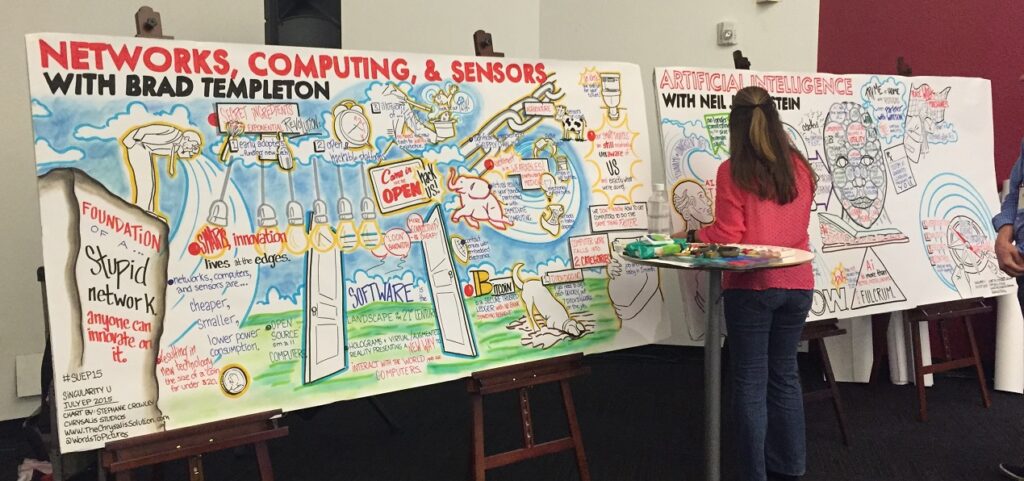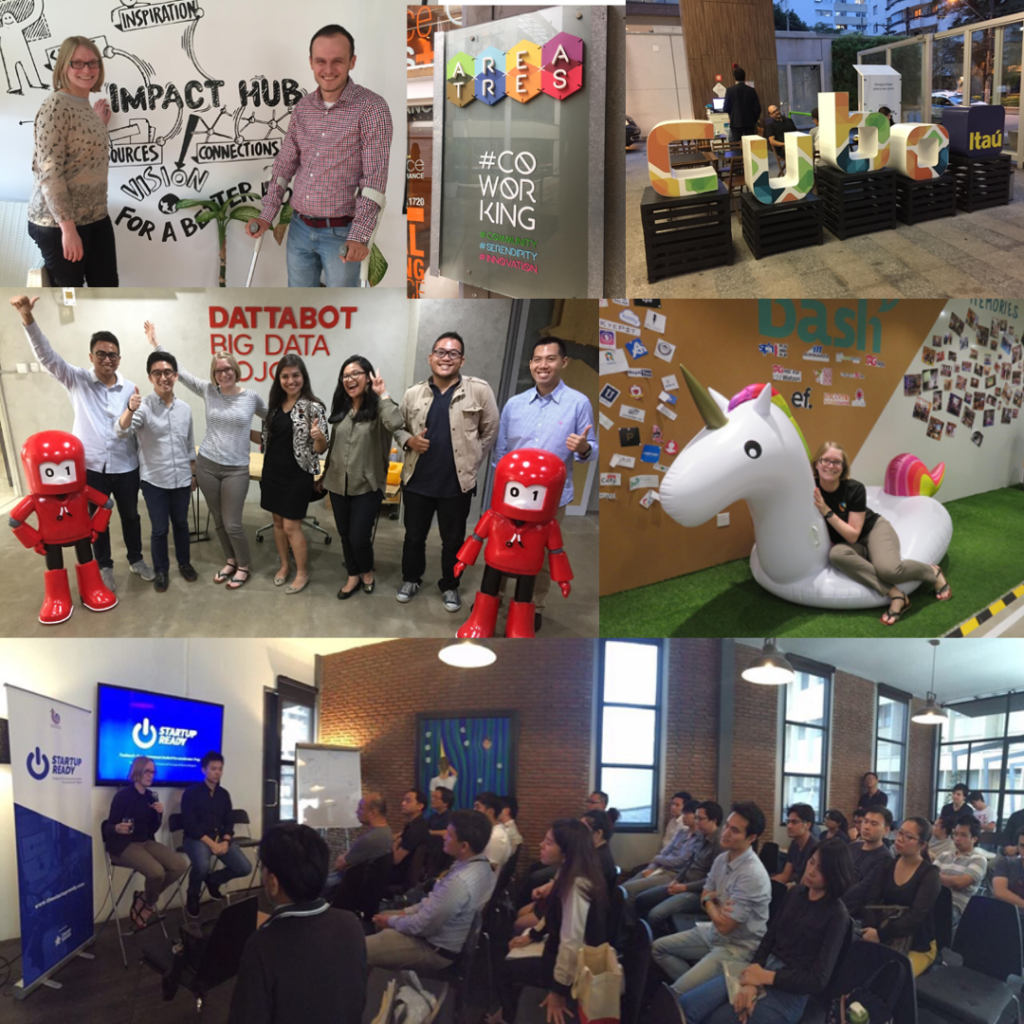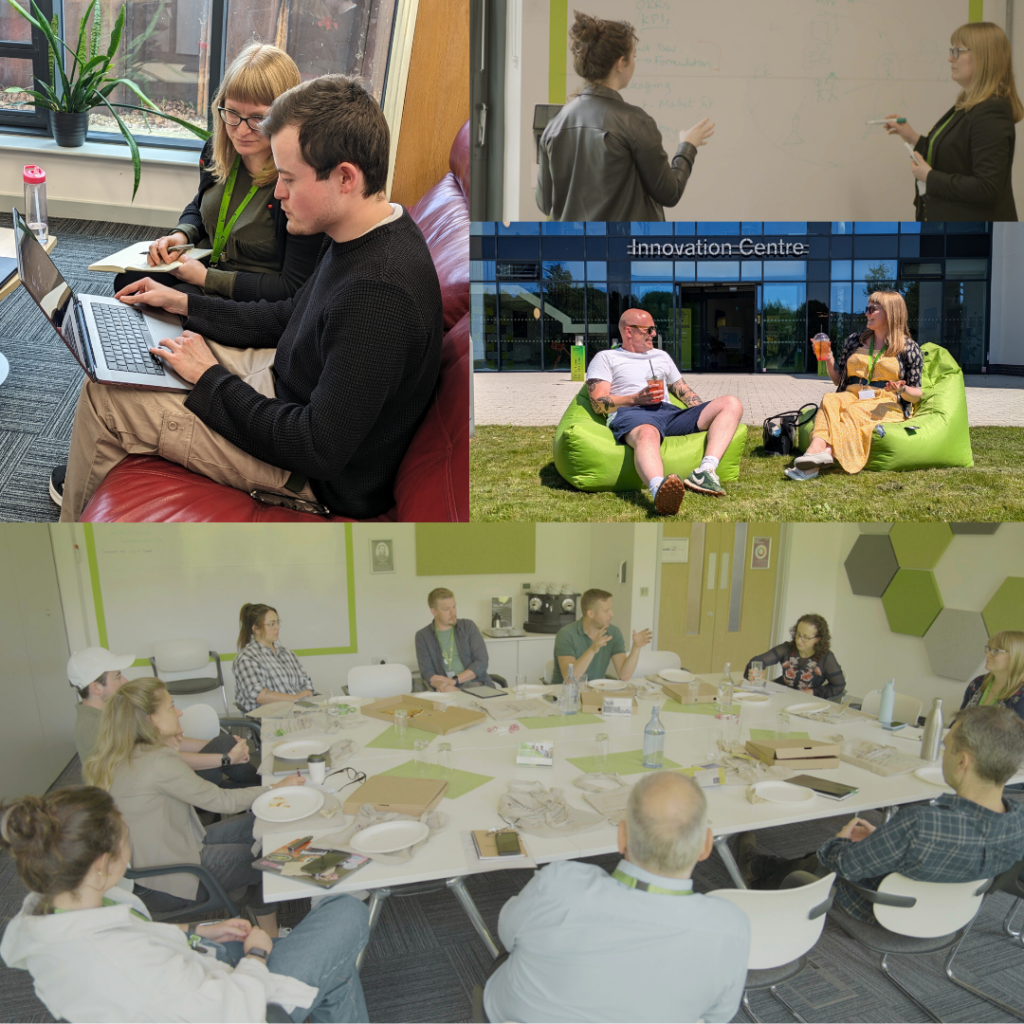In April 2024, we welcomed a new Innovation Director to the ICKG – Kathryn White – whose role was to coordinate business support services, such as coaching, mentoring and business skills events, for all of ICKG’s members. Sadly, Kathryn is now leaving us to pursue her passions for education, entrepreneurship, and equality, all combined as a PhD in Inclusive Entrepreneurial Ecosystems at Cranfield School of Management. Before moving on, Kathryn shared with us her story of how she came to be an ecosystem expert and what she’ll be working on for the next three years!


The Silicon Valley Ecosystem
From the moment I began working in Silicon Valley in 2014, I have been fascinated by the world of Innovation Ecosystems. At the time, I worked for Royal Bank of Scotland, one of the world’s largest banks, and I had been tasked with setting up an Innovation Scouting outpost in Silicon Valley. With a staff of only 2-3 people, we spent a couple of years building a network of hundreds of startups and large organisations, as well as working with all of the major venture capital firms, business accelerators, university entrepreneurship schemes, and other startup support services.
The energy and level of innovative activity within Silicon Valley was like nothing I’d ever seen – it was a vibrant community of innovators and entrepreneurial supporters, all working together to bring new ideas to market. But what I began to realise was that the vibrant Silicon Valley Ecosystem could also be incredibly insular – ‘the bubble’ we’d call it. It meant that much of the amazing intellectual, financial and creative capital of the region was being spent on innovations which would only benefit players in the same landscape. Software for startups was a major area of development, as well as cloud systems for large, established organisations, and fun tech for wealthy consumers.


Innovation Around the World
I started to think about how valuable it would be to bring this culture and infrastructure to other parts of the world, where innovation could make a truly life-changing impact. That was my inspiration to spend a year traveling the world, doing my own research into Innovation Ecosystems in less developed markets. Over 2016-2017, I travelled across Eastern Europe (including Russia), South America, and Southeast Asia, interviewing over 200 people involved with their local ecosystems, from startup founders to investors; government officials to university lecturers; coworking spaces to local support groups. I wanted to understand what stage these different ecosystems had reached, and what initiatives they were using to promote and support innovation and entrepreneurship.
After my travels, I turned my research into an ‘Ecosystem Development Framework’, with guidance on how to assess the stage of an ecosystem (from Nascent to Established), how to identify the region’s strengths and weaknesses, and crucially, how to understand the local cultural traits in regards to innovation and entrepreneurship. This formed the thesis for my Master of Business Innovation, undertaken over that year with Duesto Business School in Bilbao.




Supporting UK Businesses
Since then, I have continued to work with startups and on the development of ecosystems. I spent three years working for the University of Exeter as Innovation Manager for the Environmental Futures & Big Data Impact Lab, an EU-funded programme to help Small-Medium Enterprises to develop new products and services using big data. Next, I worked as Chief Operating Officer for a MedTech startup based in the South-west. Finally I came to ICKG to take on the Innovation Director role and provide business support to the wonderful businesses here.
But since completing my Masters, I have been keen to continue my research into entrepreneurial ecosystems, and particularly to bring in my passion for diversity and inclusion. As a woman who has worked within tech, the financial services, and entrepreneurship, this theme is incredibly dear to my heart, which is why I am now moving on from ICKG to undertake a PhD in Inclusive Entrepreneurial Ecosystems at Cranfield School of Management.
The Importance of Inclusive Entrepreneurial Ecosystems
Only 1 in 3 UK entrepreneurs is female and in 2021, only 6.1% of Small-Medium Enterprises (SMEs) had a leadership group with a majority from a non-white ethnic minority. While numerous programmes have been created to bring business training to under-represented groups, and to increase access to funding, there is a substantial need to further explore the problem and find innovative solutions.
The model of Entrepreneurial Ecosystems has developed over the past few decades into an Economic Development Policy used by regional leaders to enhance innovation-focused economic activity among smaller businesses in their regions. More recently, there has been growing awareness and concern for the lack of diversity and inclusion within innovation-focused (or ‘productive’) entrepreneurship. This has led to the development of the Inclusive Entrepreneurial Ecosystem (IEE), which is concerned with the representation and participation of marginalised groups within the entrepreneurship process and facilitating them by addressing their social and economic challenges (Pilková et al., 2016).
" Only 1 in 3 UK entrepreneurs is female and in 2021, only 6.1% of Small-Medium Enterprises (SMEs) had a leadership group with a majority from a non-white ethnic minority. "
The under-representation of marginalised groups within the British entrepreneurial sector is detrimental to the UK economy, as well as to the economic prospects of the people within those groups. In recent years, the Alison Rose Review has been set up to evaluate and improve the representation of female entrepreneurs, but more needs to be done to research and open up opportunities not just for women, but for people of different ethnicities, socioeconomic backgrounds, ages, sexualities and situations. The developing thinking around Inclusive Entrepreneurial Ecosystems has potential to make a substantive impact in the future of inclusion within the entrepreneurial sector.
Following the turbulence of Covid-19, and the uncertain economic landscape which has followed, it is more important than ever that we support the growth of the British economy. The loss of economic opportunity that is caused by under-representation of certain key demographics within entrepreneurship cannot be underestimated. Data from the Alison Rose Review suggests a potential £250 billion opportunity, from increasing the volume and profitability of female-led businesses alone.
Innovation and entrepreneurship is also a powerful force for change, and that change is disproportionately wrought in the interest areas of the typical groups who dominate the business landscape. Consequently, we are not investing enough into solving issues faced by minority or under-represented groups, such as the suppression of transgender rights, the increase in anti-semitism, and support for women’s health.
Through my research over the next few years, I intend to develop some practical, repeatable methodologies for increasing participation of diverse groups in entrepreneurship, enriching the existing literature and further developing a framework of Inclusive Entrepreneurial Ecosystems which can be used across the UK and further afield.
To find out more about Kathryn’s global research visit the Global Innovation Project website.
—
Find out more about our office space solutions, or contact us at info@innovationcentre-kg.co.uk or 01206 405 50.
